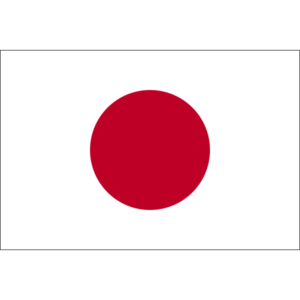Japanese stocks rebounded on Tuesday following a severe drop the previous day, with the Nikkei 225 index rising by 10.23% to 34,675.46. This increase moved the index just above the bear territory it had entered after a more than 12% plunge on Monday. Tomoichiro Kubota, a senior market analyst at Matsui Securities, noted that the panic selling had ceased, leading to more orderly trading.
Major gainers included Kikkoman, which saw a 21% rise, Mitsubishi Heavy Industries with a 20% increase, Hitachi at 16%, Honda Motor up by 15%, and SoftBank Group gaining 12%. However, Kawasaki Heavy Industries and Ajinomoto were among the decliners. Kubota mentioned that while short-term rebounds are possible, a full-scale recovery is unlikely without significant changes in fundamental economic conditions.
The yen, which had strengthened to ¥141 on Monday from nearly ¥162 a few weeks earlier, was trading around ¥145 to the dollar on Tuesday. Bonds also partially recovered from Monday’s declines, with yields rising from about 0.75% to 0.90%. The recovery followed a meeting of senior officials from the Finance Ministry, Financial Services Agency, and the Bank of Japan to address recent market declines. The benchmark index had fallen about 18% from its record high of 42,426.77 set on July 11.
Stocks had been hit hard the previous week due to a surprise rate hike by the Bank of Japan and the yen’s significant strengthening, which hurt the competitiveness of Japanese products overseas and threatened economic recovery. The falls worsened after U.S. data suggested the Federal Reserve might need to cut rates rapidly.
Positive news started to emerge after the market closed on Monday when a U.S. purchasing managers index exceeded expectations, easing recession fears. Japanese data reinforced this optimism, with real cash earnings growth turning positive in June for the first time in 27 months, showing a 1.1% year-on-year rise in inflation-adjusted pay. Average monthly nominal pay per worker increased for the 30th consecutive month, up 4.5% to ¥498,884, the fastest growth since January 1997. This follows a 5.1% wage increase agreed upon during spring negotiations and a record ¥50 minimum wage hike.
However, other indicators show challenges ahead for the economy. Household spending fell by 1.4% in June from a year earlier, contrary to a median market forecast of a 0.9% drop. Yutaro Suzuki, an economist at Daiwa Securities, pointed out that despite wage increases, the weak yen and rising prices have made consumers cautious about spending.
Many economists predict that real wage growth in Japan will remain positive in the coming months due to ongoing wage increases amid a severe labour shortage and rising prices. If the yen’s excessive weakening has reversed, leading to its recent appreciation, this could benefit Japanese households by lowering the cost of imported goods and reducing inflation.
If higher wages can shift consumer sentiment and reduce their savings mindset, consumption may begin to recover. However, Suzuki noted that given the prolonged negative real wage growth over the past two years, significant increases in consumption are unlikely.
The rebound in Japanese stocks highlights a more stable market environment, but sustainable economic recovery remains uncertain amid ongoing challenges and cautious consumer behaviour.
Fidelity Japan Trust PLC (LON:FJV) aims to be the key investment of choice for those seeking Japanese companies exposure. The Trust has a ‘growth at reasonable price’ (GARP) investment style and approach – which involves identifying companies whose growth prospects are being under-appreciated or are not fully recognised by other investors.



